Life Lessons Learned in the Civil Litigation Clinic
John J. Ammann (’84), the McDonnell Professor of Justice in American Society and proud alumnus of Saint Louis University School of Law, is retiring after 25 years as a law professor and 17 years as director of the Legal Clinics.
His influence on his students over the years has been profound, and no less so than his impact on some of the region’s most poor and vulnerable citizens.
To name just a few of his achievements – Prof. Ammann has successfully advocated for clemency for prisoners who were victims of domestic violence and whose sentences were disproportionate to their crimes, most notably Judy Henderson, whose life sentence for a crime she did not commit was commuted in December 2017 after nearly 36 years in prison.
He has ensured blind Missouri residents received the full pension amount owed to them by the state when bureaucratic processes got in the way. He worked to ensure that the cure for hepatitis C was covered by Missouri Medicaid, which was virtually the only insurance provider in the state that until November 2017 did not cover it. He has lobbied for paid family leave policies, geriatric parole and voting accessibility for the visually impaired.
Most recently Ammann successfully worked with national partners to convince the state to implement new procedural safeguards protecting children in foster care, ensuring that they are administered psychotropic medication only when safe and necessary. And he is perhaps best known locally for his pro bono legal services to Missouri veterans, having been recognized during this past St. Louis Regional Veterans Day Observance for his decades of service and for bringing hundreds of students along with him in that endeavor.
This article features some of Ammann’s clinic students over the years, their memories of their time in the clinic under his mentorship, the lessons they learned and where they are now.
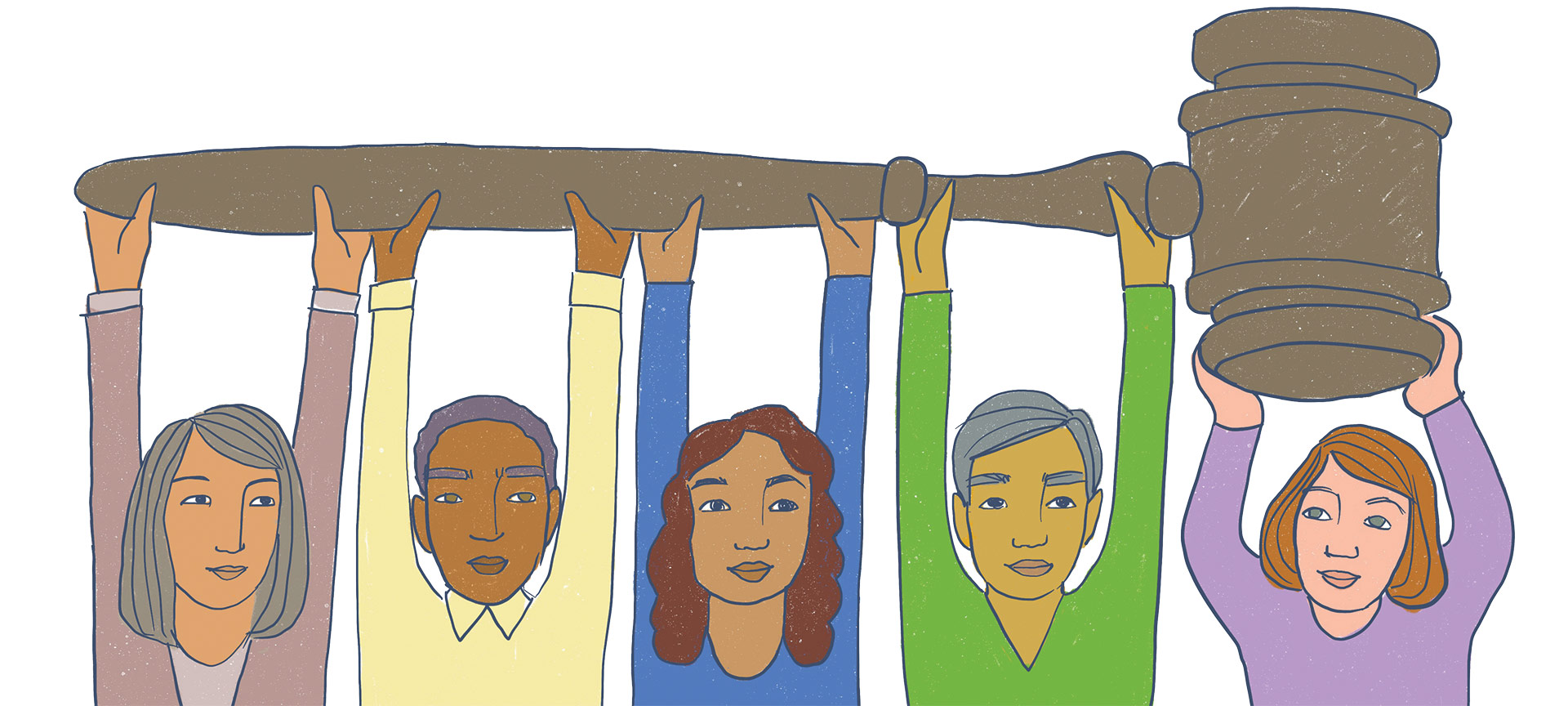
Illustration by Michelle Kumata
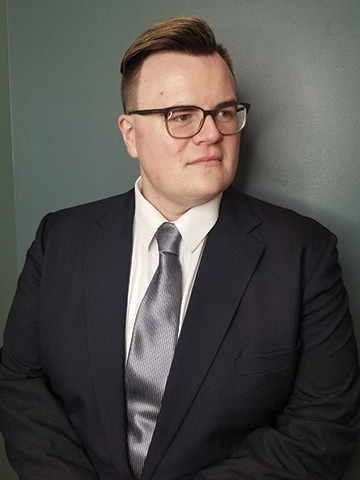
Michael Oldweiler ('16)
It was the summer of 2014, and Michael Oldweiler (’16) had reached the end of his rope with law school. Disillusioned with some of his classes, he didn’t think he was going to finish the program.
Once I had practical application and had real clients and worked with John, it was like, ‘Okay, this is why I went to law school.’ I wouldn’t be an attorney if it wasn’t for John Ammann.”
Michael Oldweiler ('16)
When it was announced that requirements to apply for a spot in the Legal Clinics had changed and that he was now eligible, he figured he’d give it one last chance.
“It was one of those make-or-break moments,” he said. “I signed up for the summer course with John [Ammann] called Civil Practice.”
That course turned out to be the motivation he needed to stay in law school.
“It was practical, real-world, that’s just when it all started coming together. I latched onto it, loved it and just absolutely aced that class,” he said. “Once I had practical application and had real clients and worked with John, it was like, ‘Okay, this is why I went to law school.’ I wouldn’t be an attorney if it wasn’t for John Ammann.”
Oldweiler went on to take not just one, but three more semesters with Ammann in the Clinics.
“When I started, he said, ‘Who wants this case?’ and I said, ‘I’ll take it.’ I thought I’d gotten the phone number right [that Ammann had read aloud] but was too scared to clarify, so I called every variation of that number,” Oldweiler said. “By the end, we’d have a hearing somewhere and he’d just be like ‘Hey, can you handle this?’ It was really neat to see the growth. I first walked into the clinic not knowing anything, and by the time I walked out I felt like I could deliver good legal representation – that you just have to learn from doing and having a good mentor.”
Oldweiler, who grew up on a farm in central Illinois, came to see Ammann as more than a mentor and as a sort of father figure. Not having any family in the legal profession, he looked to Ammann for advice on everything from writing briefs to what to wear to court.
“I’m sure John questioned some of my shirt-tie combos,” Oldweiler chuckled. “Just really questionable fashion decisions. He let me be me, but at the same time, when it was time to rein it in, he kept me tethered. I do get fired up and very zealous. In one instance, he told me, ‘You haven’t been an attorney long enough to use the word ‘tomfoolery’ in a brief.”
One memorable case Oldweiler worked on involved the conservatorship of a client who lived alone and had had a great relationship with the previous student handling her case, so was naturally suspicious when he took over.
“This lady could be cantankerous; she’s been through some stuff so she’s not going to hold back,” he said. “The first couple phone calls I had with her I thought, ‘Who does she think she is?’ Then you find out she’s just lonely. I’d go visit her every month and sit with her. Eventually we figured out what was going to work for her and she warmed right up. LeAnn Upton [Legal Clinics assistant] and I took her to Byrd and Barrel and just sat with her and talked; that was just so cool right before graduation and felt like a fitting send-off.
“I just had tons of adventures with John in the clinic,” he continued. “It was such a mix of positive outcomes for the client with great learning opportunities, and it was just fun; we’d just have a blast.”
Now, serving as legal counsel for the Missouri Department of Health and Senior Services (DHSS), Oldweiler uses those same skills in people management.
“Dealing with constituents is something I’ve kind of become an expert in,” he said. “There have been a couple situations at work now where they’re like ‘Oh, we’ve got this really angry constituent, can someone talk to them?’ I recently was able to get a plan of attack, get them to calm down.
“At DHSS, for every project there is a reason that we are involved in it and it is always something to make things better for somebody,” he continued. “I like being someone who can give hope, comfort, and I definitely picked that up from John. He could take a bad situation and bring out the best in it and get a good outcome.
“It’s hard to put into words how much of a positive impact he had on my career, that foundational approach to see people as people. That’s just a powerful way to look at things.”
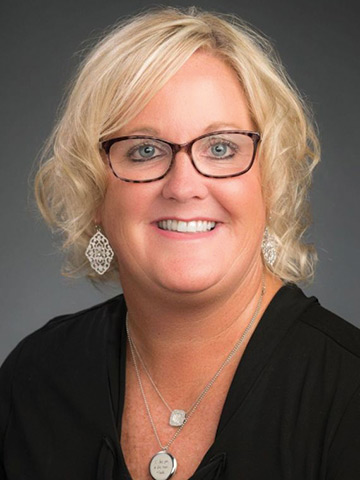
Jennifer Graves-Borcherding (’02)
For Jennifer Graves-Borcherding (’02), an attorney at Kramer, Hand, Buchholz & Partney law firm who spent two semesters in the Legal Clinics, the clinic experience was invaluable.
I always tell everyone, ‘Work in the clinic, it’s so much more important’ — knowing where to stand when you get out in court, just the practical stuff you learned because you were doing something practical.”
Jennifer Graves-Borcherding (’02)
“I always tell everyone, ‘Work in the clinic, it’s so much more important’ — knowing where to stand when you get out in court, just the practical stuff you learned because you were doing something practical.” Graves-Borcherding says that she came out of clinic “one thousand percent” more prepared than her peers who had not had that type of experience.
But beyond the practicality of practicing law, the clinic transformed her view of the world around her.
“I’ve been in St. Louis my entire life, so that was important to me – learning to be part of the community that I live in,” she said. In Ammann’s clinic, she focused especially on family law and on assisting veterans, which she carries into her work today, taking on pro bono cases at nonprofits Eureka-Pacific Elks and Dogs for Our Brave.
Being of service to veterans was a goal she inherited from her father, who she said was not called for the draft during the Vietnam War since he had a child on the way and therefore sought to serve veterans through his heating/cooling business at every opportunity.
“My dad always felt he needed to give back to vets because he felt he could’ve been killed over there. John Ammann reminded me so much of my dad, who was very much like ‘if you couldn’t pay, we’d work it out later.’ He’s this person who just had this huge heart and huge soul and wants to help people the right way, and John never wanted any notoriety for it.
“[In the clinic] I realized that our society doesn’t really help veterans when they’ve dedicated their lives to this country. ... John would invite students to go take care of city tickets, and sometimes you might be helping them with a ticket in municipal court for speeding or loitering, but they literally just wanted somebody to talk to,” she said. “You used to walk down the street and be afraid of homeless people – it just kind of changed my entire perspective of St. Louis City and realizing now with the organizations I am involved in how many of them were or are veterans.”
The biggest takeaway for Jennifer Graves-Borcherding, though — “just kindness.”
[John and Marie Kenyon ('86)] certainly trained us all that kindness goes a long way,” she said. “Be respectful to the clerk, say hi to the maintenance guy in the courthouse because he’s doing the cleaning – know his name – just that kindness factor.
“I have attorneys all the time who are like, ‘You seriously know that guy’s name at the courthouse?’ and I do!” she continued. “In the world of law, not everyone’s kind, but the two of them taught kindness, and kindness to anyone you’re going to come across. And I think that does go a long way.”
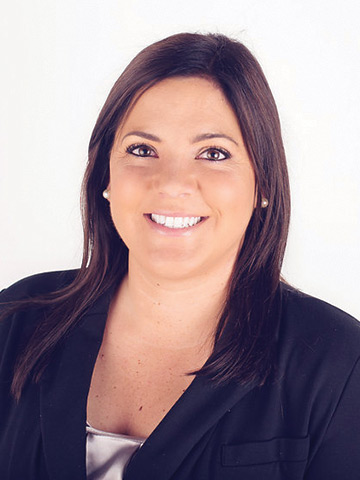
Jenifer Snow (’14)
Another one of Ammann’s students in the clinic, Jenifer Snow (’14), graduated more than a decade later, but the biggest lesson she learned was exactly the same.
“Always be nice and be overprepared,” she said, a mantra she has adopted as her own and which she has advised current law students as a member of the SLU LAW Young Alumni Society (YAS) advisory board.
That’s what law is all about ... At the end of the day, it’s all people that you’re advocating for.”
Jenifer Snow (’14)
In fact, she saw this lesson in action before her time in the clinic even began. Upon applying to work in the clinic, she initially did not get accepted, and she was upset.
“I quite literally walked into John’s office and was like, ‘I am interested in doing litigation, I want to be in your clinic, I’ll do it without credits, I just want the experience.’ Basically I begged my way into his clinic!” she said. “Within five minutes of me leaving, he emailed me with a spot. It was awesome and ended up being the best decision. I built a relationship with John, and that’s what leads me to still even work with him today."
As a student, Snow got involved in the clemency case for one of Ammann’s longest and most well-known clients, Judy Henderson, whose life sentence was commuted in December 2017 after nearly 36 years in prison and who received a full pardon in June 2018.
“I would write her letters, visit Chillicothe [Correctional Center],” she said. “It was just amazing meeting Judy and hearing her story, hearing how she’d been incarcerated so long and was able to make the best of it.”
As part of her advocacy in clemency cases, Snow testified in Jefferson City in support of a bill advancing parole eligibility for elderly prisoners and wrote an op-ed with two fellow students explaining the bill’s reasoning that was published in the St. Louis Post-Dispatch.
She also worked on an HOA case involving a family with a daughter who had a disability and needed special wheelchair accommodations that the HOA was complaining about.
“I thought I wanted to litigate and touch people’s lives; John basically showed me firsthand what people in our position can do to help others. The dad of the daughter who was handicapped, he was in the military and he gave me a token that I still have as a thank you – it was something I will never forget.
“A lot of people think you become a lawyer to make money, to say you’re a lawyer,” she continued. “John doesn’t do it for any of those reasons; he does it to help people.”
Today, Snow is an associate attorney at Kamykowski, Gavin & Smith, P.C., where she does medical malpractice defense but still sees parallels with her past work in the clinic on behalf of plaintiffs.
“I think just personalizing the law – John makes every case about a specific person, and on the defense side it’s the same thing,” she said.
“That’s what law is all about, especially in litigation – it’s getting to know people, getting to know clients, working with your clients, collaborating with people. At the end of the day, it’s all people that you’re advocating for.”
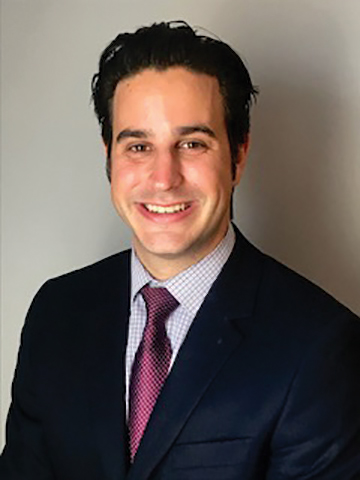
J. Thomas Mihalczo ('17)
Learning that lesson was critical for Thomas Mihalczo, who, like Oldweiler, attributes Ammann’s influence to his becoming an attorney.
John’s always been helping those people who aren’t necessarily at the cusp of our recognition; we know that they’re there but we just often don’t see them.”
J. Thomas Mihalczo ('17)
“My experiences in the clinic essentially saved my law school career in the fact that it switched my mind into working for someone else and not for yourself, and that’s what advocacy is all about – without clients we don’t have jobs!” he said.
Mihalczo’s biggest project in the clinic was working on a lawsuit against the St. Louis Election Board to make electronic voting machines available to the blind and visually impaired. He participated in a press conference hosted by the Legal Clinics in conjunction with the Missouri Council of the Blind, which encouraged all persons with disabilities to participate in Missouri’s presidential primary election. It also called on the legislature to adopt bills requiring that the audio ballot-enabled machines be available for all polling places for all elections, including municipal elections.
“It was surreal to walk your blind client to a podium to help talk about the issues,” he said. “I can’t imagine a more practical, real-world experience.”
Prior to the lawsuit, he said, in some counties a blind or visually impaired person would have to go with a relative or close friend to the polls who would have to walk them through the process, which the suit alleged was a violation of the Americans with Disabilities Act.
“Voting is one of the core American values; your right to a secret ballot is fundamental,” Mihalczo said.
As part of the community outreach process, Mihalczo and Ammann visited MindsEye Radio, a radio station in Illinois that broadcasts to blind and visually impaired persons, to do an interview about what was going on and how to let them know if they experienced problems with their voter registration.
After graduating from law school, Mihalczo was interested in getting involved in community work and successfully applied to join the MindsEye Radio board of directors.
“When I submitted my application to get on the board, it was almost meant to be,” he said. “That’s just one example of what John exposed me to. It improved my professional and personal experience: there’s no way I would’ve gotten a board position straight out of school without that.
“John’s always been helping those people who aren’t necessarily at the cusp of our recognition; we know that they’re there but we just often don’t see them,” Mihalczo continued. “He turned me on to all of that and that cause, and I’ve been fortunate to be able to continue trying to help out.”
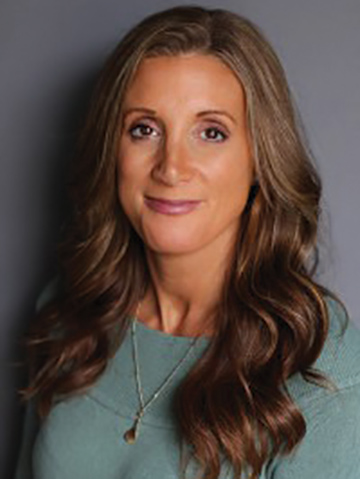
Shannon Norman ('12)
Going to law school in her late 30s with three children at home, Shannon Norman knew that she wanted to get all the practical experience she could to prepare herself for starting her own firm.
Nothing, nothing, nothing happens easily or quickly. This is a perseverance game."
Shannon Norman ('12)
“Working in the Legal Clinic was obviously the most practical class you could get,” she said. “I don’t know how I ended up in the appellate portion with John Ammann, but I got assigned Judy [Henderson]’s case. As I got to looking at her case and seeing how she and her co-defendant were represented by the same guy and then dug a little deeper – it was just one of those things. I adamantly believed that she did not belong in prison.”
Little did she know then that she would end up sticking with Henderson’s
case for seven years.
“I became very close to her, and because I graduated at the end of that semester, I talked to John [saying], ‘I don’t want to let go of this case.’”
Ammann agreed, and as a newly minted attorney Norman was able to make more progress by establishing some meaningful contacts in the governor’s office and in Jefferson City, where she also got involved with geriatric parole more generally.
She became a passionate advocate for all the clemency petitions, including Henderson’s, that had been sitting in a drawer for eight years that no one had bothered to read. Every time Henderson completed a certification in prison, Norman sent it in to add to her file in the governor’s office – so much so that she actually had a box instead of just a folder sitting in the governor’s office.
“I have to admit I had my times, and I know Judy did, too, where I thought ‘As badly as I want this, I feel like this is just a waste of time, we’re never going to get there,’” she said. “If I had quit at the fifth year I don’t know what would’ve happened. But all the stars aligned after seven years.”
When Governor Jay Nixon left office in 2017 and Governor Eric Greitens was sworn in, Norman said the “noise” she and the Legal Clinics had been making for years finally paid off. By December of that year, Henderson was granted clemency, and in June 2018, Greitens issued her a full pardon as one of his last acts as governor.
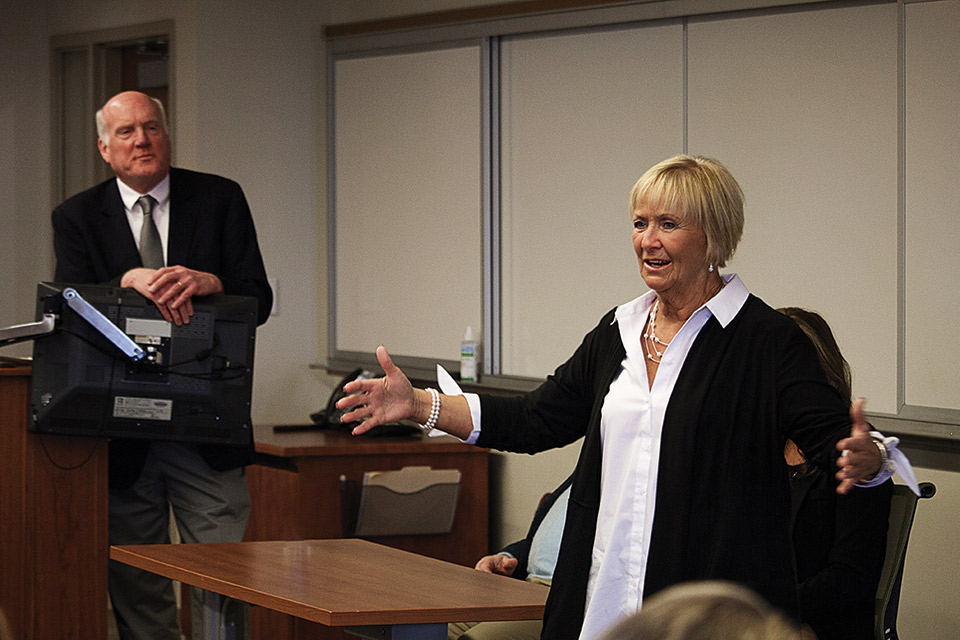
Henderson maintains contact with him and some of his staff members to this day, and she and Norman are currently working on a book together to tell her story.
Norman’s takeaway from the experience – “Nothing, nothing, nothing happens easily or quickly. This is a perseverance game. And that’s kind of the way all your cases are. Anything you’re trying to get done like that, criminal justice reform, clemency pardons, even appeals, it’s persistency.”
As a sole practitioner at Shannon Norman Law, LLC, Norman remains active in geriatric parole advocacy and continues to take on two to three pro bono cases every year. In January 2019, she was named a Legal Champion by Missouri Lawyers Weekly. She attributes her passion for these cases to her work in the Legal Clinics under Ammann.
“What I learned from John is pretty easy – John literally has spent his life advocating for those who can’t advocate for themselves,” she said. “He’s spent his life in that legal clinic just trying to make sure that people who couldn’t afford and didn’t have representation had a fair shot. Any student who goes through the clinic, there’s no way you can come out and not realize that these things need to be done and there’s just not enough people doing them. So John taught me to donate my time to those who need it.”
His influence extended beyond Norman and even made an impact on her entire family.
“Judy and I, we’re basically family now. We see each other all the time, travel together,” Norman said. “My kids all know her, and she knows my grandson. They realize [through this experience] that there are some injustices in the world that, if you persevere long enough, you can maybe correct them. … The only other thing I can say is, John certainly has earned his retirement, but I can’t imagine that there will ever be another like him.”
— By Maria Tsikalas